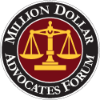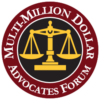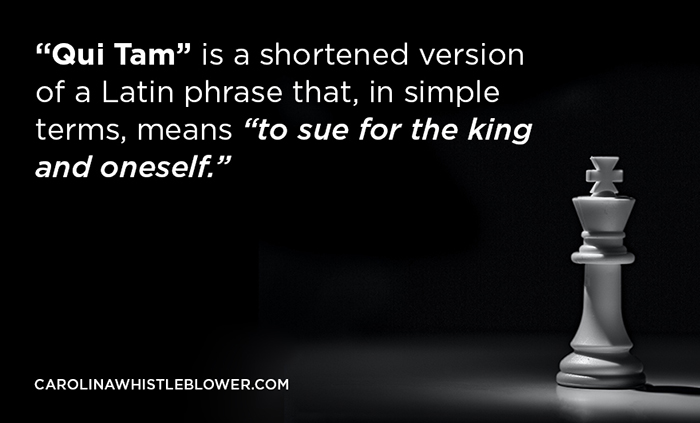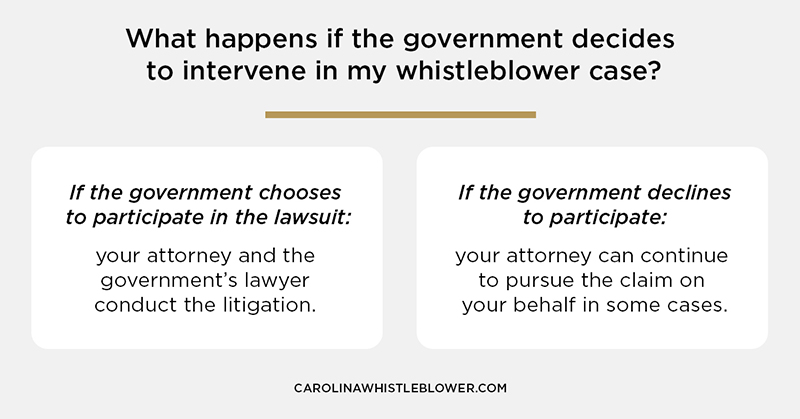The False Claims Act is a federal law that allows those aware of fraud against the government to blow the whistle and, if successful, share in the recovery.
It is vital to act quickly when filing a whistleblower or qui tam case. Under the federal False Claims Act, the first person to file a whistleblower lawsuit is in the best position to proceed with the legal action and collect potential monetary damages.
False Claims Act Lawyers: Qui Tam Claims
The United States government relies on the good faith and intentions of contractors and companies it does business with. This presumed nobility creates situations where a party may seek to take financial advantage of the government – and it’s not a new problem.
Did You Know?
The False Claims Act dates to March 1863, when Congress enacted a law to address fraud by military contractors during the Civil War. Contractors at the time defrauded the U.S. government by selling the military cardboard boots, sawdust for gunpowder, decrepit horses, and rotted ships repainted to look new. Furthermore, they would overcharge for these products that were useless and put soldiers and sailors at risk!
The False Claims Act, and the laws passed over time to supplement it, forbid contractors and companies from knowingly submitting a false claim to the government for payment or avoiding payments. Essentially, the FCA prohibits anyone from cheating the government – and the taxpayers whose money is on the line.
The government has a vested interest in enforcing the FCA but lacks the resources. Consider that millions of government contracts are issued each year. The penalties for violating the FCA come in the form of monetary damages and substantial civil penalties, though some behavior that violates the FCA may also violate federal criminal laws. But how can the government catch fraudsters when it cannot possibly supervise every contract or claim submitted to Medicare, Medicaid, and other federal healthcare programs?
You may be the answer.
What are qui tam lawsuits?
A somewhat unique characteristic of the FCA is its reliance on individuals to weigh in against those who defraud the government. The act allows private citizens known as “relators” to blow the whistle on others who they believe commit violations. These are called “qui tam” writs or lawsuits and have their basis in ancient common law. “Qui Tam” is a shortened version of a Latin phrase that, in simple terms, means “to sue for the king and oneself.”
Learn More: The history of the False Claims Act
When you bring a case under the FCA, you become a whistleblower by filing a qui tam claim or action on behalf of the government. If successful, qui tam claims can result in a monetary reward to a whistleblower under the law. Whistleblowers can receive 15%-30% of the recovery in some cases.
What does the False Claims Act prohibit?
According to 31 United States Code § 3729, it is illegal for any party to knowingly submit a false or fraudulent claim for payment or approval. It’s also unlawful to make false statements or records that are material to a false or fraudulent claim for payment or approval.
Some examples of violations include:
- Submitting a false timecard as a government contractor
- Performing inappropriate or unnecessary medical procedures to increase Medicare reimbursement or misrepresenting who provided care to charge a higher rate
- Providing inaccurate data on a mortgage application with government backing
- Overcharging for material goods under a government contract
- Certifying that a contract falls within specific guidelines (such as minority or veteran contracts) when it does not
- Knowingly failing to meet deadlines to provide goods or services or charging for goods and services that were never delivered or rendered
What penalties does the False Claims Act impose?
FCA violations can result in severe financial penalties for individuals and companies. As of 1986, the penalties under the law are $5,000 to $10,000 per violation. The penalty amounts are, however, adjusted for inflation each year. For 2022, for example, the penalty for each instance of fraud can be $11,803 to $23,607, plus treble damages – triple the amount defrauded from the government.
How much compensation might I win as a whistleblower?
If the FCA investigation is successful, the citizen blowing the whistle will typically receive at least 15% and possibly up to 30% of the settlement or action in that case. The reward to a whistleblower is codified in 31 United States Code § 3730(c)(5).
Am I eligible to receive rewards for blowing the whistle?
Your eligibility depends on a few factors. You’re generally ineligible to receive whistleblower settlement funds if:
- You were convicted of a criminal act related to the violation
- Your claim is based upon allegations or transactions that are the subject of an existing FCA case
- The government already received notice of the alleged fraud
Eligibility is a delicate area and requires legal context and understanding of your particular situation. There are times when whistleblowers are involved in fraud against their will or could be implicated. Consult an experienced Carolina Whistleblower lawyer immediately, and discuss your unique circumstances with someone with your best interests at heart.
Frequently Asked Questions about Whistleblower (Qui Tam) Claims
-
- If I know of someone defrauding the government, how do I report it?
- What are whistleblower cases?
- Why should I blow the whistle?
- Who are whistleblowers, and what do they do?
- What are some examples of fraud whistleblowers have reported?
- How much can I get for being a whistleblower?
- Is my job protected if I file a whistleblower case?
- What happens if the government decides to intervene in my case?
- Is my whistleblower case worth pursuing if the government declines to intervene?
- How can a Carolina Whistleblowers Attorney help me?
If I know of someone defrauding the government, how do I report it?
If it’s unclear what you should do when you suspect fraud against the government, whether due to your circumstances or the nature of the fraud, the safest move may be to contact a whistleblower attorney. You can call us at 1-888-292-8852 for a free, confidential evaluation of your particular situation. We’ll fight to protect you through our You-First Policy and tell you if we believe your claim has merit.
What are whistleblower cases?
A whistleblower case or lawsuit is a legal action undertaken by a private citizen, known as a “relator,” to try to protect the government from fraud. It’s also called a qui tam case, action, or lawsuit, and relators are also known as whistleblowers. If you think you are alone, you’re not.
In 2021, the government recovered $5.6 billion from FCA violations, $5 billion of which related to healthcare. Whistleblowers filed 598 qui tam actions, and the government recovered $1.6 billion in FCA settlements and judgments in whistleblower cases. To those whistleblowers, the government paid $238 million.1
Unfortunately, studies indicate that most fraud goes unreported. While fraud can occur in virtually every industry, including housing and mortgage lending, education and student loans, U.S. Customs, finance, and more, fraud in the healthcare industry represents by far the largest source.
Healthcare fraud can include false claims to Medicare, kickbacks and collusion, upcoding, and many more. Some of the most significant cases involved the opioid epidemic, COVID-19-related fraud, and procurement fraud.
Why should I blow the whistle?
The reasons are as different as the relators themselves. Some step forward on their principles, determined to do the right thing and safeguard American taxpayers. Some may be afraid they may be implicated in fraud they did not commit and wanted no part of. Others are motivated by the possible financial incentive a qui tam case can bring.
In successful cases, qui tam relators – whistleblowers – generally receive 15%-30% of the recovery. Some cases settle for $10 million or more.1
Who are whistleblowers, and what do they do?
Whistleblowers are bank tellers, financial managers, nurses and medical professionals, administrators, machinists, suppliers, manufacturers, subcontractors, and anyone in between. In other words, people like you and us. Being in a position of authority or control isn’t strictly required or even common.
In short, anyone with knowledge of fraud against the government and who can support their claim with evidence is a potential whistleblower. Anyone has the right to report fraud through a whistleblower (qui tam) lawsuit as long as the information they provide is:
- original,
- not previously known,
- and not known to the public.
You must be able to produce evidence of your allegations – things like emails, phone conversations, billing records, test results, sales reports, etc. This information must be original information and not public knowledge.
Learn More: Famous Whistleblowers in History
What are some examples of fraud whistleblowers have reported?
Rather than cite specific cases, it’s easy to offer examples that happen repeatedly. Each of these examples has happened multiple times!
- Nurses or office administrators who regularly notice “upcharges” or “upcoding” for Medicare and Medicaid patients.
- Contractors with the Department of Defense who notice that their company is billing hours for personnel who aren’t actually working or that materials contracts are being shorted or fulfilled with substandard material.
- Researchers with universities or research hospitals who become aware of grant applications for research that is either not performed or not performed according to the methods on the application.
- Bank branch managers or financial managers who discover a pattern of fraud, like the Wells Fargo fake account scandal.
If you are aware of fraud being committed against the government, you may have a qui tam claim no matter your position or industry.
How much can I get for being a whistleblower?
If your qui tam claim is successful, you may be entitled to up to 30% of the total recovery when the government declines to become involved in the case. If the government chooses to take the case, you could receive 15-25% of the recovery.
Is my job protected if I file a whistleblower case?
People who know about fraud may be reluctant to blow the whistle for fear of retaliation by their employer. However, the False Claims Act protects those who file a whistleblower claim from retaliation. If the whistleblower is an employee, the False Claims Act protects them from:
- Discrimination
- Termination
- Shortened work hours
- Demotions
- Inhospitable work environment
- Other impermissible punitive actions
A whistleblower complaint is filed under seal for 60 days or more. It is not available to the accused or the public, and it can only be discussed by those investigating the case. While under seal, the government investigates the claim and searches for evidence while your identity is hidden.
Won’t I eventually lose my job if my employer is found liable?
Although cases are filed under seal to help protect you, your anonymity won’t last forever. Whistleblower protections generally trigger if you’re fired, though filing an FCA case will not necessarily prevent you from being fired. However, the law also allows you to seek compensation if you can show that your firing or demotion was retaliation.
What happens if the government decides to intervene in my whistleblower case?
There are two paths to a successful qui tam case, depending on what the government chooses to do based on the facts and circumstances of the case.
If the government chooses to participate in the lawsuit, your attorney and the government’s lawyer conduct the litigation.
If the government declines to participate, your attorney can continue to pursue the claim on your behalf in some cases.
This choice affects many details surrounding how the case proceeds, but it also affects the potential payout to the whistleblower if the case is successful. If the government declines to take the case, you may receive 25-30% of any recovery. If the government takes the case, you may receive 15-25% of any recovery.
What is the process of an FCA case with the government’s involvement?
The federal False Claims Act (many states, including North Carolina, have similar laws) requires you to file a complaint in court, submit it to the government, and disclose and detail your allegations in a Disclosure Statement. Your whistleblower attorney will handle this on your behalf.
The evidence you submit will be used in a written Complaint and Relator’s Statement filed with the U.S. Attorney. Your Complaint and Relator’s Statement will include:
- the name of the entity or entities suspected of fraud
- the nature and operation of the alleged fraud
- and any documented evidence supporting the alleged fraud
If the government decides to intervene in the case, it will conduct an investigation of its own during which your identity and case information are kept confidential. Complaints filed in court throughout the investigation are kept under seal. The government’s attorneys may interview you during their investigation as they search for additional proof of the fraud you’ve alleged.
Note that your part is not over if the government takes over the case. You’ll likely have to participate and appear at trial if necessary. That’s when your identity will be revealed. The good news is that most cases are successful when the government intervenes, and you may receive between 15 and 25 percent of the government’s likely recovery.
How long does a whistleblower case take?
Statistically, the average qui tam case lasts about three years, but some can take longer. Have patience. The government does not move quickly. Prepare for lengthy processes, procedures, and protocols in an undercover whistleblower investigation, and don’t expect daily updates from the government. You may not hear much during this time.
Is my whistleblower case worth pursuing if the government declines to intervene?
The government declines to participate in about 80% of cases. You may still be able to pursue the suit on behalf of the government, and if successful, you could be entitled to a more significant portion of the government’s recovery – up to 30%. The government’s involvement is not a requirement for success, nor is the government’s absence necessarily a reason to quit.
It’s worth noting that there will be some critical differences in how the case proceeds without the government. Primarily, the government’s participation in the case adds vast resources to investigate it.
In 2021, the government recovered $5.6 billion through False Claims Act cases, its second-highest recovery ever. There were 801 actions filed, 598 of which were qui tam actions – government fraud whistleblower cases. Those qui tam cases represented $1.2 billion of the year’s total recovery. According to Department of Justice statistics, $479 million of qui tam recoveries were from cases in which the government declined to intervene.1
Before you give up on your qui tam case, discuss it with your Carolina Whistleblowers Attorney. We can review the specifics and give you our read on the strength of your case. The government’s refusal to participate doesn’t doom your case – but it does increase your potential reward.
How can a Carolina Whistleblowers Attorney help me?
First and foremost, you want hands-on experience on your side. You want an attorney who’s already succeeded with big cases.1 We realize that discretion is critical to you, and we act accordingly.
We also realize that you’re already taking a calculated risk by blowing the whistle. You need not take on additional financial risk to pursue your case. We work on a contingency fee basis.2 We have the people, funds, and technology to aggressively pursue the investigation even if the government declines to intervene.
There are always expenses incurred to investigate and build a case. However, because we work on a contingency fee, you pay us nothing if we do not win your case.2
Whistleblowers are critical to fraud recovery for the government
By their nature, whistleblower lawsuits rarely become well-known unless they’re vast in scale. However, whistleblowers are probably much more common than you think.
Even though successful whistleblowers may share considerable compensation, it can be very uncomfortable to bring a fraud case against your employer. People are afraid of losing their jobs or suffering discrimination. Still, you may feel a duty to step forward, and that is what the lawmakers who drafted the False Claims Act believed.
“It is the duty of all persons in the service of the United States, as well as all other inhabitants thereof, to give the earliest information to Congress or any other proper authority of any misconduct, frauds, or misdemeanors committed by any persons in the service of these states.”
Contact the Carolina Whistleblowers Attorneys for a free, confidential case evaluation of your whistleblower claim
An experienced Carolina whistleblower lawyer can fight to protect your rights and safeguard your best interests throughout the process.
If you have information or evidence that indicates fraud is being committed against the U.S. government, contact us online or call 1-888-292-8852 for a free, completely confidential case evaluation. There is absolutely no obligation.
“Bill has the ability to ‘think outside the box’…which makes him extremely effective as an advocate for his clients.” 1 — Attorney who previously worked with Bill
Awards we’ve won






For standards of inclusion for awards listed, visit bestlawyers.com, thenationaltriallawyers.org, superlawyers.com, farrin.com/business-nc-power-list, and millondollaradvocates.com. National Trial Lawyers Top 100 designation is for 2025. Regarding the Million Dollar Advocates Forum, we do not represent that similar results will be achieved in your case. Each case is different and must be evaluated separately. Firm award is for the Law Offices of James Scott Farrin. Attorney awards are for attorneys with the Law Offices of James Scott Farrin.
Contact the Carolina
Whistleblower Attorneys
If you’re wondering if it’s a good idea to speak with a whistleblower lawyer about what you know, let us set the record straight.
- Corporate ethics hotlines can be risky and may lead to termination. If you’ve already done this, call us immediately.
- Your coworkers could be aware of the fraud – or complicit in it – and you should not talk to them about it.
- The first claim to be filed under the False Claims Act can proceed – if you’re not first, you’re at a serious disadvantage and may get nothing (another reason not to speak to your coworkers about it).
- A confidential discussion costs you a few minutes, but could save you time, stress, and money.
"*" indicates required fields

